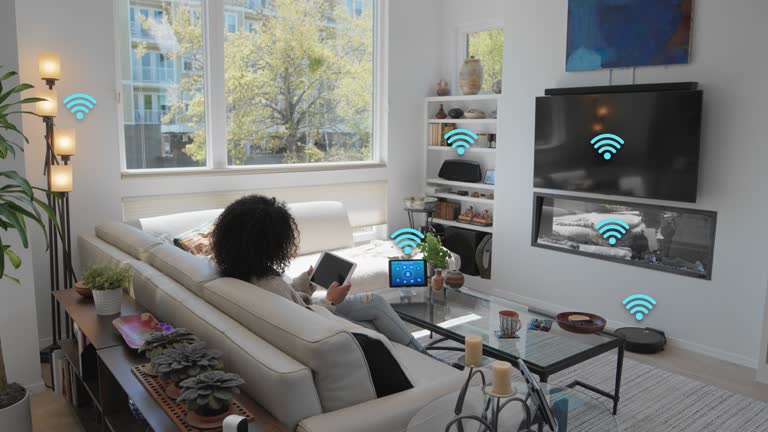
Sustainable water usage in smart homes: Effective Solutions Explored
Share
Sustainable Water Usage in Smart Homes: Intriguing Innovations
In recent years, the conversation around environmental conservation has morphed into a fervent call to action. As part of this dialogue, sustainable water usage in smart homes is becoming a topic of crucial importance. For tech professionals and enthusiasts, the seamless integration of intelligent solutions to enhance water efficiency presents a captivating frontier. With water being an essential, yet sometimes scarce commodity, integrating technology to manage its usage ensures tangible benefits both for households and the planet.
Smart homes stand poised on the innovation highway, significantly enhancing sustainable practices, particularly about water usage. As technology continues to evolve, so too do the capabilities that enable water conservation within domestic settings.

The Rise of Smart Water Management
Within smart homes, water management is no longer just about conserving resources; its about maximizing efficiency through targeted technological advancements. The integration of IoTenabled devices in home systems is paving the way for smarter water management.Innovative products like smart water leak detectors are showcasing how technology ensures water conservation. By promptly identifying leaks, these devices prevent water loss, highlighting one aspect of a broader revolutionary change.
How Smart Systems Contribute
Utilizing smart technology within your home doesnt have to be daunting. Instead, it's an opportunity to engage with systems that adapt and evolve according to your needs. For instance, deploying automation solutions that monitor your water consumption patterns can lead to significant conservation. These systems actively manage water flow based on predictive algorithms.The inclusion of IoT home automation systems makes it possible to gather and analyze data, leading to informed decision-making about resource usage.
The Role of Machine Learning
Among these advancements, machine learning in water detection is vital. By employing sophisticated data analysis techniques, these systems analyze consumption data to improve water use forecasting, thereby reducing wastage.Key Technologies Underpinning Water Efficiency
Essential Smart Devices
Technological advancements in household systems have accelerated rapidly, with smart devices becoming staples within modern homes. Devices such as smart meters and AI-powered irrigation systems directly aid in achieving sustainable water usage.Advanced smart meters, as discussed in smart building leak detection, monitor water consumption with precision, providing users with detailed insights into their usage patterns, inspiring data-driven modifications to enhance efficiency.
Intelligent Irrigation Systems
Another significant area of development is intelligent irrigation systems, which offer automated and optimal watering schedules based on live weather data. These systems minimize water wastage by ensuring that landscapes receive only the necessary water, creating a significant reduction in water use overall.Challenges and Opportunities in Implementation
Despite the promising technologies available, there are inherent challenges in implementing these solutions universally. One primary challenge lies in adapting existing infrastructures to be compatible with smart technologies. This obstacle nevertheless opens up extensive opportunities for development within the tech industry.Ensuring Successful Integration
To navigate these challenges, robust strategies are needed to facilitate the seamless integration of smart water solutions across diverse property types. As these systems become increasingly accessible, the potential for widespread adoption grows significantly.It is pivotal for businesses and tech professionals to address cost-related obstacles by offering scalable solutions. Integrating widespread education and awareness campaigns will further encourage adoption. The trend indicates a promising rise in technologies used in green construction, supporting environmental conservation efforts globally.
Conclusion
For tech enthusiasts and professionals alike, the arena of smart homes and sustainable water usage presents an exciting confluence of technology and necessity. By continuously innovating and developing tools to facilitate optimal water use, the tech industry plays a pivotal role in protecting our environment.
Recognizing the significance of these tools and embracing them can herald a new era of smart home living, with sustainability at its core. For those interested in furthering their knowledge, exploring how sustainable water management can transform home life is a recommended next step.

FAQs
How do smart devices improve water usage in homes?
Smart devices enhance water usage by providing precise data and analytics, enabling informed decisions regarding conservation. They often include features such as intelligent leak detectors and AI-based irrigation systems.
What role does AI play in water conservation?
AI in water conservation involves using machine learning to predict and manage water usage patterns, optimizing supply, and reducing wastage through predictive analytics.
Are sustainable practices in smart homes expensive to implement?
Initially, the investment in smart systems can be costly; however, long-term savings on water bills, combined with environmental benefits, offer substantial value in the broader context.
